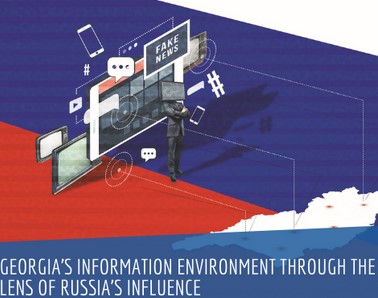How Does Russia Target the Physical Domain to Achieve Its Strategic Goals in Georgia?
How Does Russia Target the Physical Domain to Achieve Its Strategic Goals in Georgia?
Author(s): Ketevan Chachava
Subject(s): Media studies, Government/Political systems, International relations/trade, Security and defense, Political behavior, Politics and communication, ICT Information and Communications Technologies
Published by: NATO Strategic Communications Centre of Excellence
Keywords: Russia; Georgia; Strategic goals; physical domain; Russian influence; Georgia’s information environment; Russian interest; media;
Summary/Abstract: The choice of Georgian citizens is evident: the majority wants Georgia to join the European Union (EU) and NATO. This aspiration is even reflected and enshrined in the constitution of Georgia, which states that Georgia’s accession to the EU and NATO is an overarching priority for the country. However, Georgia’s road to European integration has not been easy. Russia, which considers the post-Soviet space to be its own ‘backyard’ where it should exercise control, has repeatedly sought to undermine Georgia’s European integration process. To that end, Russia has exerted an influence upon Georgia’s information environment through several approaches, including by targeting the physical domain through cyber-attacks, the occupation of 20 per cent of Georgia’s internationally recognised territory, and the application of active measures through influence networks, among others. As a tool for influencing Georgia’s information environment, disinformation has historically been deployed by the Kremlin and gained newfound relevance since the Russo-Georgia War in 2008. Disinformation is often used to manipulate Georgian identity to imply closeness to Russia or to appeal to identity politics in order to amplify the position of those social groups that promote Russia’s interests. In this regard, physical social networks and interconnectivity become crucial.
Book: Georgia’s Information Environment through the Lens of Russia’s Influence
- Page Range: 64-80
- Page Count: 17
- Publication Year: 2021
- Language: English
- Content File-PDF

